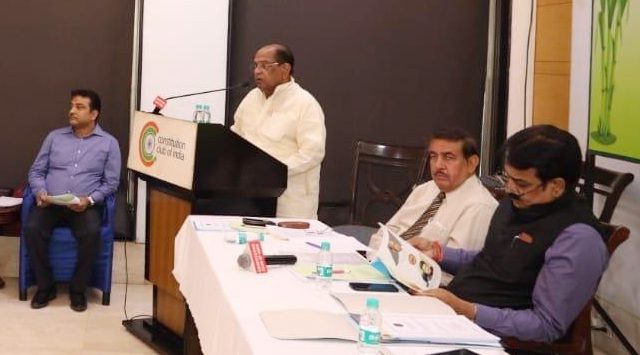The National Federation of Cooperative Sugar Factories (NFCSF)’s 515 sugar mills across the country have produced 160 lakh ton sugar during the current sugar season (till January 15) which is ten lakh ton more than the corresponding date of last year. However, the average sugar recovery has decreased by 0.14 per cent as compared to last year’s average recovery on this date recorded 9.64 per cent, informs a press release.
“According to the NFCSF’s estimate, this year’s sugar season will be over by the end of April and the new sugar production will be about 343 lakh tonnes which is estimated to be less than 16 lakh tonnes compared to last year’s 359 lakh tonnes.
Apart from this, around 45 lakh tonnes of sugar will be diverted to ethanol production. Thus, this year, the gross total sugar production will be around 390 lakh tonnes, said the President of the National Cooperative Sugar Factory Federation, Jaiprakash Dandegaonkar.
“By adding an opening stock of 61 lakh tonnes, out of the gross availability of 451 lakh tonnes, 275 lakh tonnes will be consumed locally, 45 lakh tonnes will be used for ethanol and 64 lakh tonnes is expected to be exported, leaving about 67 lakh tonnes of sugar remaining at the end of the season.
In view of these figures, factory level sugar prices across the country are expected to remain under pressure at Rs 3150-3200 per quintal (S grade) and Rs 3300-3450 per quintal (M grade),”said Prakash Naiknavare, Managing Director of National Cooperative Sugar Factory Federation.
“Though ethanol production is given top priority by the central government, the recent increase in the purchase price of ethanol is insufficient. Considering the increase in the production cost of ethanol from sugar cane and the rise in costs of other related matters, further increase in the purchase price of ethanol is necessary”, Dandegaonkar said.
“Compared to the record export of 111 lakh tonnes of sugar by the country last year, this year the government has capped the sugar export to 64 lakh tonnes and also applied a quota system, which has adversely affected the sugar exports from the port-based states of Maharashtra, Gujarat, Karnataka, Tamil Nadu and Andhra Pradesh.
At the same time, Naiknavare has expressed the fear that importing markets Indonesia, China, Korea, Malaysia, the Middle East and the countries of Africa, which were successfully penetrated by the Indian sugar last year, will slip away from our hands which could be captured by Brazil, Thailand, and Australia this year.
Naiknavare said however, some positive decisions regarding ethanol are expected in the near future. Granting additional sugar export quotas to factories that use sugarcane juice for ethanol production, increasing the purchase price of ethanol produced from damaged grains and maize, imposing additional export tax on molasses exports, reducing the import tax on denatured ethanol and also encouraging flex fuel manufacturers as well as increasing the number of 20 percent blended petrol pumps will definitely increase use of Ethanol in the near future.
